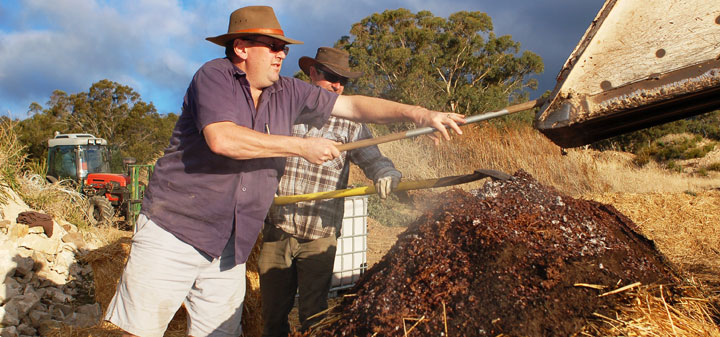
Wine can seem complicated, but really there are only six types: red, white, pink, still, sparkling, and fortified. So far so simple.
But I tend to categorize wine by grape-growing practices, of which there are five broad choices.
Most wine-growers are conventional, which means they spray vines with “chemicals.” These sprays are often by-products of the oil industry. They are potentially risky health-wise, and often quite costly. So wine-growers are increasingly turning to greener farming methods.
The first step in getting off the chemical treadmill is switching to “Sustainable” or low-input wine-growing: reducing how often hard chemicals are sprayed, using “softer” chemicals, then eliminating them altogether. Wine-growers who eliminate all “chemical” sprays for three years can call themselves “certified organic”.
A next possible step is Biodynamics®. This goes further than organics in three ways. First biodynamic growers try to be self-sufficient, which means composting green waste from their vines, preferably with manure from cows living on or near the vineyard. Second, Biodynamic growers treat their vineyards with seven medicinal plants including chamomile, nettle, and oak bark, and two sprays: one for the soil made from cow manure and another for the vines made from silica. These nine treatments or “preparations” help vines “tune in” both to earthly cycles and to lunar and other celestial cycles or “forces” too. The Biodynamic idea is to have ripe, healthy grapes tasting of a strong sense of place. Nearly ten per cent of the world’s vines are now certified organic or Biodynamic, up from less than three per cent a decade ago.
Finally, there is “natural” wine. Natural winemakers are free spirits and don't abide by the rules that govern organic and Biodynamic winemakers. Natural wines are generally made using minimal filtration or inputs like sulfur dioxide (“sulfites”). Sulfites stop wines going vinegary but are blamed for the hangover effect (wrongly, scientists say). Sulfur dioxide does adversely affect asthmatics however.
In the coming weeks, I’ll be sharing the stories of winemakers within schools of organic, sustainable, Biodynamic and natural winemaking. This band of alternative farmers is collectively producing some of the most interesting and delicious wines on the market.
Monty Waldin was the first wine writer to specialize in green issues. He has written numerous books and his work has been published in such publications as London's Daily Mail, Decanter and Harper's Wine & Spirits Trade Review, among others.










